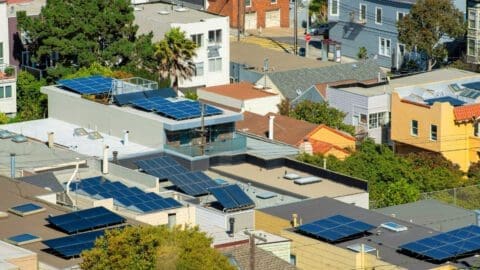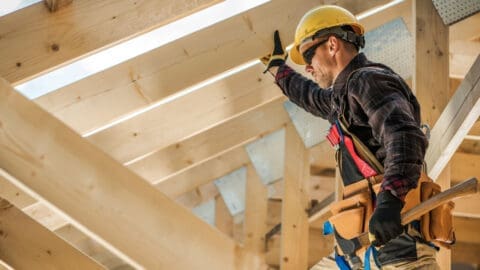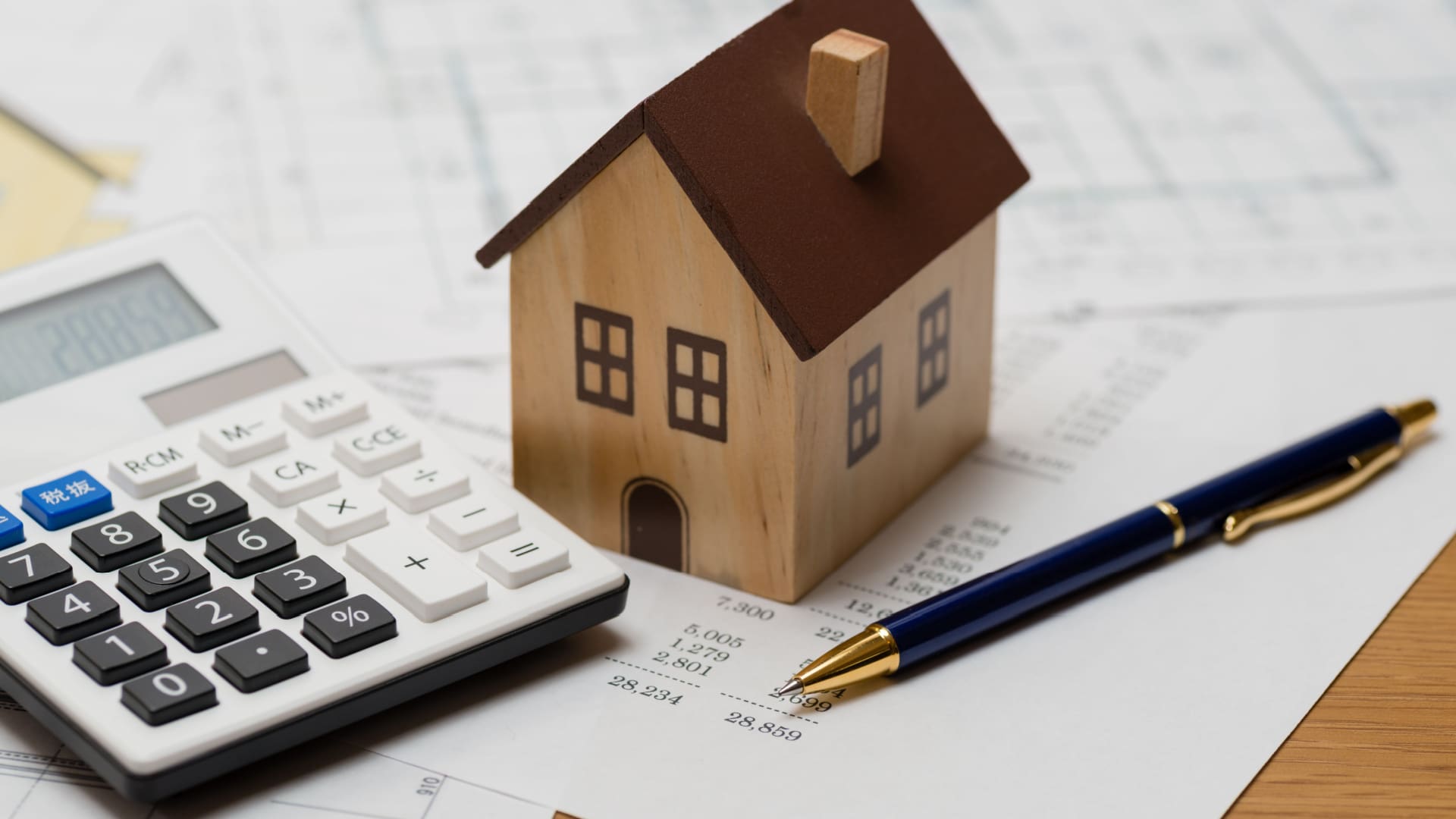Florida is renowned for its sunshine and beaches, but its residents know all too well the toll that storms can take on residential properties, particularly the roofs. With the constant threat of storms, the roofing industry thrives, but not always for the right reasons. The aftermath of a storm often brings a slew of contractors to the area, some legitimate and some not. And today, we’re going to talk about the dangers of trusting storm chasers.
The Unpredictability of Florida Storms
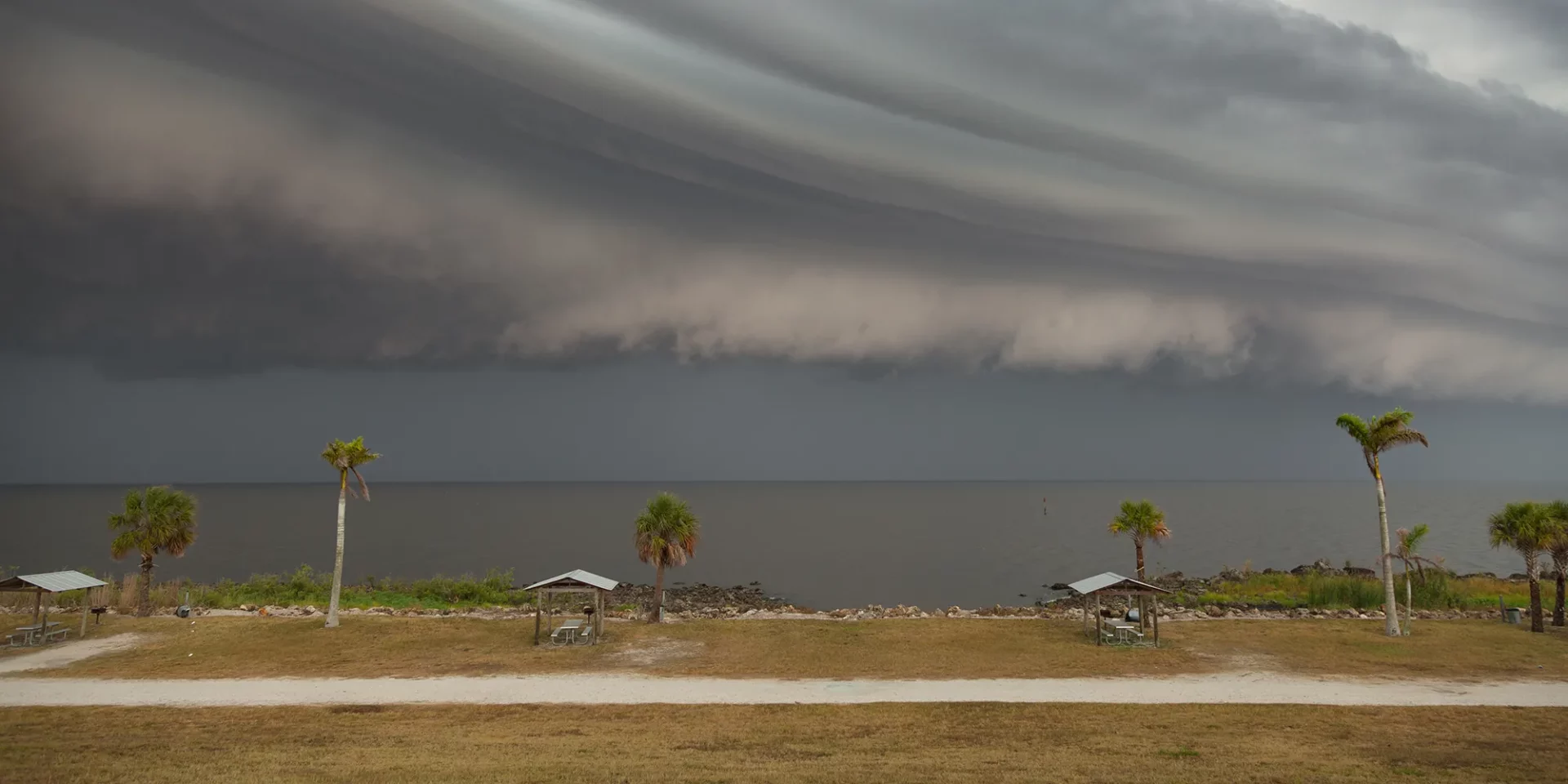
Florida’s weather can change in a heartbeat. One moment it’s clear skies, and the next, storm clouds are rolling in. With this unpredictability comes a need for resilient residential roofing, especially in areas like Clearwater, Florida. And when damages do occur, homeowners seek out repairs promptly. But how do you know you’re making the right choice?
What is a Storm Chaser?
In the world of natural disasters and weather phenomena, the term “storm chaser” might evoke images of thrill-seekers with cameras, racing behind tornadoes or hurricanes to capture that once-in-a-lifetime shot. However, in the roofing industry, the term takes on a different, less romanticized meaning.
A storm chaser, when referring to roofing, is an opportunistic contractor who closely monitors weather patterns and forecasts. Once a storm hits an area, these contractors swiftly move in, aiming to capitalize on the sudden surge in roofing repair and replacement needs of the affected homeowners. These individuals or companies typically descend upon storm-hit neighborhoods, going door-to-door and offering their services, often with the allure of immediate repairs at seemingly unbeatable prices.
There are a few characteristics that often set storm chasers apart from legitimate, community-based roofing contractors:
- Transient Nature: They don’t have a fixed base of operations. Instead, they move from one storm-hit area to another, chasing the next business opportunity.
- Aggressive Marketing: Storm chasers are known for their high-pressure sales techniques. They might present homeowners with special deals that are only valid for a short time to pressure them into making a quick decision.
- Questionable Quality: While not all storm chasers provide subpar work, many do. The emphasis is often on completing the job quickly rather than correctly, which can lead to further complications down the road for the homeowner.
- Financial Incentives: Some might offer to cover the homeowner’s insurance deductible, a practice that can be ethically and legally questionable.
- Lack of Ties to the Community: Unlike local contractors who rely on community trust and word-of-mouth, storm chasers don’t have a reputation to uphold in the area they’re working in. Once they finish their quick fixes, they’re onto the next storm-hit region, leaving homeowners with no recourse if problems arise later.
Understanding the nature and tactics of storm chasers can help homeowners make more informed decisions when it comes to their roofing needs, ensuring they receive quality work that stands the test of time.
Differences Between Legitimate Roofers and Storm Chasers
The aftermath of a storm often sees homeowners in a desperate bid to repair their damaged properties. In such situations, finding the difference between a genuine roofing contractor and a storm chaser can be crucial. Both may offer seemingly similar services, but the disparity in the quality of work, business ethics, and long-term commitment is vast. Let’s break down these differences in detail:
- Community Roots and Commitment: Legitimate roofing contractors, such as John Hogan Roofing, often have deep-seated roots in the community they serve. These businesses are not just looking for a quick job; they’re an integral part of the community and are committed to its welfare. Their reputation in the community is built over years or even decades, and they pride themselves on delivering quality work that upholds their good name.
- Licensing and Insurance: A hallmark of a genuine roofing contractor is proper licensing and insurance. This ensures that they adhere to local building codes and standards. It also protects homeowners from potential liabilities in case of accidents during the roofing job. Storm chasers, on the other hand, might bypass these crucial aspects, leaving homeowners vulnerable to both subpar work and potential legal issues.
- Local References and Portfolio: Established roofing contractors can readily provide local references and showcase a portfolio of their past projects. This offers a tangible proof of their craftsmanship and customer service. Storm chasers, having no consistent business history in a particular location, might struggle to provide local references, making it hard to gauge the quality of their work.
- Warranty and After-Service: Genuine roofing companies stand by their work. They offer warranties that assure homeowners of their work’s durability and are available for follow-ups or repairs if issues arise later on. Storm chasers, with their transient nature, are often nowhere to be found once the job is done, leaving homeowners in the lurch if problems emerge later.
- Transparent Pricing: Reputable roofing contractors provide clear and upfront pricing, detailing labor, material costs, and any additional fees. There are no hidden costs, and homeowners know exactly what they’re paying for. Storm chasers might lure homeowners with low estimates, only to introduce hidden charges later on or compromise on material quality to maintain their profit margins.
- Ethical Business Practices: While storm chasers often capitalize on homeowners’ desperation after a storm, genuine contractors operate with ethics. They provide honest assessments, don’t pressure homeowners into unnecessary services, and respect the client’s decisions.
In essence, while both legitimate roofers and storm chasers may operate in the same space, their approach to business, commitment to quality, and ethical standards set them worlds apart. As a homeowner, understanding these differences can be the key to making an informed decision that safeguards both your home and your finances.
Dangers of Hiring a Storm Chaser
When a storm wreaks havoc on your property, the immediate concern is getting back to normalcy. In the midst of this chaos, the appeal of someone promising quick repairs at a fraction of the usual cost can be hard to resist. But, the age-old adage, “If it sounds too good to be true, it probably is,” rings especially true here. The dangers of hiring a storm chaser are manifold and can have long-lasting repercussions:
- Subpar Workmanship: The most immediate risk with storm chasers is the possibility of shoddy and rushed work. These contractors are typically more interested in volume over quality. The job might look satisfactory initially, but hidden issues like improper sealing, misaligned tiles, or poor attic ventilation can emerge over time, leading to even more damage and expenses in the future.
- Inferior Materials: To keep costs down and maximize their profit, storm chasers might use low-grade materials that don’t meet industry standards. While these materials might hold up in the short term, their durability during subsequent storms or over time is questionable. This means you might find yourself redoing the entire roofing job much sooner than expected.
- Absence of Warranty: Legitimate roofing companies stand by their work and offer warranties. Storm chasers, with their fly-by-night nature, rarely provide any guarantees. If an issue arises a few months after the job, the homeowner is often left with no recourse, facing additional expenses to rectify the problem.
- Scams and Financial Manipulation: Beyond the tangible problems with the work itself, storm chasers are notorious for various scams. They might demand a significant down payment and disappear without starting the work. Some might claim to handle your insurance claim and inflate the damages or costs, which is insurance fraud and can land the homeowner in legal trouble.
- No Accountability: Since many storm chasers are not rooted in the community, they have little to no accountability. They can easily move on to the next storm-stricken area, leaving behind a trail of unsatisfied homeowners. Without local ties, tracking them down or seeking legal remedies becomes challenging.
- Exploitative Practices: Storm chasers often exploit the vulnerability of homeowners post-disaster. They might use high-pressure sales tactics, making homeowners feel that they need to make an immediate decision or they’ll miss out on a great deal.
- Lack of Proper Documentation: Many storm chasers may not possess the necessary licenses or insurance to operate in a particular area. This can put homeowners at risk of violating local codes and regulations. Additionally, if an accident occurs during the job, the homeowner could be liable if the contractor doesn’t have proper insurance.
In the aftermath of a storm, while the urgency to repair and restore is understandable, it’s essential to exercise caution. The pitfalls of hiring a storm chaser can be long-lasting, turning what seems like a bargain into a costly mistake.
Storm Chasing Roofing Contractors – Video
Recognizing Roof Water Damage
After a storm, it’s essential to identify and address roof water damage promptly.
Signs and Symptoms
- Discolored patches or water stains on ceilings
- Dripping water or puddles
- Curling, cracked, or missing shingles
Importance of Timely Inspections
Regular inspections, especially after a storm, are vital. They ensure minor damages don’t evolve into major issues. An experienced roofing contractor can assess the integrity of your roof, ensuring your home remains protected against future storms.
Residential Roofing Options
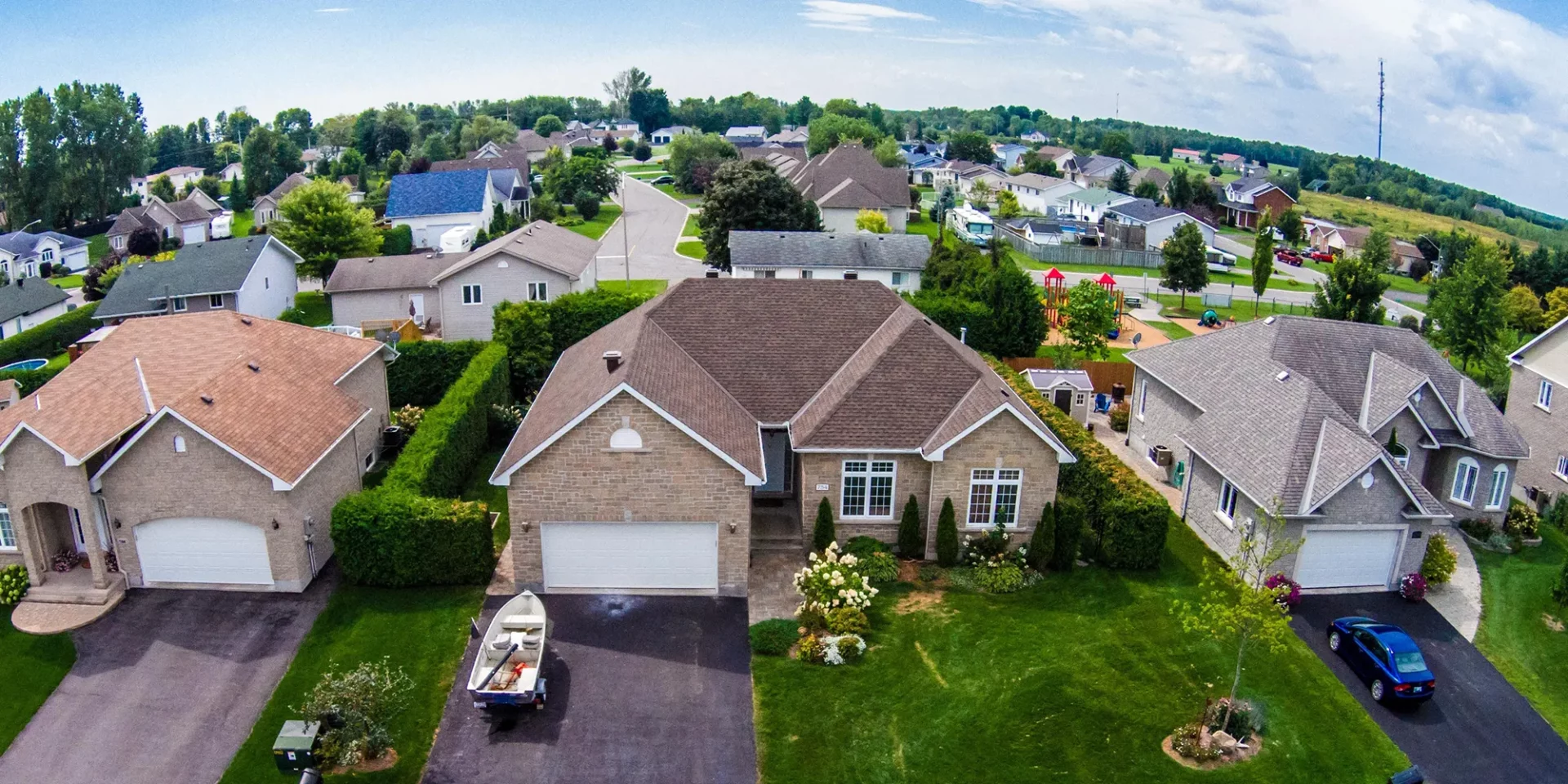
Florida homes need resilient roofing options to stand up against the elements.
Asphalt Shingles: A popular choice due to its affordability and variety. When installed correctly, they can last up to 20 years.
Metal Roofing: Known for its durability, it’s an excellent choice for homes in storm-prone areas. Metal roofs can last 40-70 years.
Tile Roofing: A classic option, tiles add aesthetic appeal and are extremely durable, with a lifespan of 50 years or more.
John Hogan Roofing: The Expert Choice in Clearwater, Florida
For over 30 years, John Hogan Roofing, a family and locally-owned business, has been serving people in Tampa Bay, ensuring their roofs withstand even the harshest Florida storms. Their reputation speaks for itself. With roots in the community, they’ve built trust through consistent, high-quality work.
Benefits of Hiring a Local, Family-Owned Business
- Personalized service with attention to detail
- A deep understanding of local weather patterns and roofing needs
- Prompt service and accountability
Storms are inevitable in Florida, but damages to your home don’t have to be. By making informed choices and trusting experienced, reputable contractors like John Hogan Roofing, you can ensure your home remains safe, dry, and protected.
FAQs
- Why is it important to hire local roofing contractors? Local contractors understand the specific needs and challenges of the region, ensuring tailored solutions.
- What risks are associated with storm chasers? Inferior workmanship, scams, lack of accountability, and potential further damages to your home.
- How often should I have my roof inspected? At least once a year and after major storms.
- Why are metal roofs popular in storm-prone areas? Their durability and ability to withstand extreme conditions make them ideal.
- What sets John Hogan Roofing apart from other contractors? Their 25+ years of experience, local roots, and commitment to quality and trust.
HAVE THE WORK COMPLETED RIGHT THE FIRST TIME
You May Also Like:
A Homeowner’s Guide to the Florida PACE Program for Roof Replacement
In Florida, a strong, reliable roof isn’t a luxury—it’s a necessity. But with the high cost of replacement, many homeowners are forced to delay this critical work, putting their homes at risk. While options like home equity loans or personal loans exist, there is another powerful financing tool designed specifically for Florida homeowners: the PACE…
Read MoreBenefits of Integrating Solar Panels with Your Roof in Florida
In the Sunshine State, it’s no secret that the sun shines bright nearly all year long. Florida is not only a paradise for beach lovers but also an ideal location for harnessing solar energy. If you’re a homeowner in Florida, you’ve probably considered integrating solar panels into your home, especially as the state continues to…
Read More15 Crucial Questions to Ask Before Hiring a Roofing Contractor in Florida
In Florida, where hurricanes, heavy rain, and intense sunshine are part of everyday life, your roof is more than just a cover — it’s your home’s first line of defense. So, when it comes time for a roof repair or full replacement, hiring the right roofing contractor isn’t just important — it’s essential. Whether you’re…
Read More

